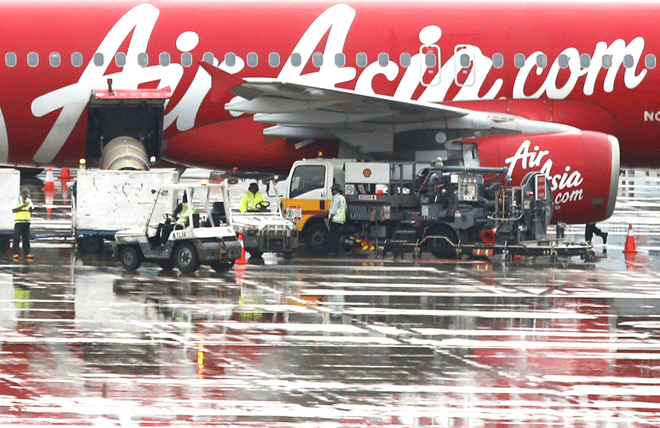Mixed sentiments on AAX’s prospects
KUCHING: AirAsia X Bhd (AAX) garnered mixed sentiments from analysts as they expect the airline could see recovery in its core routes while others believe oil prices and subdued passenger growth could continue to weigh down its prospects.
In a filing on Bursa Malaysia, AAX reported a net loss of RM312.7 million for 2018, compared with RM98.9 million recorded in 2017.
It explained that the negative variance was mainly due to significantly higher fuel prices, which MIDF Amanah Investment Bank Bhd’s research team (MIDF Research) said was a 28 per cent year-on-year (y-o-y) increase in the financial year 2018 (FY18).
AAX also noted that the net loss was due to the provision for impairment on amount due from a joint venture.
MIDF Research noted that with average fuel prices rising by +4.7 per cent y-o-y in FY18, fuel expenses climbed 27.9 per cent higher and as a result, fuel costs made up 40 per cent of total operating costs in FY18, up seven percentage points more compared to the year before.
Consequently, it said, the annual average RASK-CASK spread turned negative for the first time in three years.
Nevertheless, it pointed out that AAX has embarked on more conservative hedging policy; increasing its average hedge ratio to circa 50 per cent in FY19 compared to circa 14 per cent in FY19.
“We believe recovery is on the horizon as core routes start to gain better traction moving forward in addition to the newer ones.
“AAX plans to strengthen networks in main markets such as Greater China such as Taipei which has seen approximately 70 per cent of passenger traffic coming from Malaysia.
“In addition, AAX continues to enhance its brand presence in other markets namely, Japan in conjunction with the Tokyo 2020 Olympics.
“Consequently, we believe further improvement in cost structures such as flights to more cost effective airports such as Avalon Airport, Melbourne and lower aircraft lease rates could sustain earnings in the long run,” MIDF Research opined.
On the other hand, the research arm of Affin Hwang Investment Bank Bhd (Affin Hwang) said: “We expect AAX’s business environment to remain challenging in anticipation of higher oil prices and subdued passenger growth.”
However, it noted that AAX’s fuel hedging is timely and should help mitigate the impact of rising fuel prices.
“As at end-December 2018, AAX has hedged circa 52 per cent of its 2019 fuel requirements at an average hedge cost of approximately US$63 to US$64 per bbl (Brent price).
“The hedging was, in our view, timely. We expect Brent crude to strengthen to US$70 to US$75 per bbl in 2019 and AAX’s oil hedges should help lower its fuel cost in a rising oil price environment,” Affin Hwang added.
“We have revised our earnings forecasts to account for AAX’s latest hedging position which should lower its fuel cost against our earlier forecast, and lower marketing charges.
“We now expect AAX to report a smaller net loss of RM13 million in 2019E (from an earlier projection of RM76 million net loss),” it projected but noted that it still retained its ‘sell’ rating on the stock.
Meanwhile, despite its optimism on AAX, MIDF Research said downward adjustments to earnings are necessary in the near term.
“We are revising down our earnings forecasts to RM91.6 million in FY19 while introducing FY20’s figure of RM95.6 million.
“This is taking into consideration of the lower passenger yield assumptions as cheaper airfares could retain market share and make up for the international passenger levy effective from June 2019,” it added.
MIDF Research maintained its ‘neutral’ call on the stock and said: “Despite our lower yield assumptions of the FY18 and FY19 performance, the headwinds faced by AAX is moderated by its prospect which is tied to its long-term strategic plan of further reduction in CASK following expansion plan, and stronger focus in core markets.
“This will be supported by AAX’s gradual shift to modern fleet operation. However, we are cognizant of the volatility in oil prices given the sanctions on Iran and Venezuela combined mixed with plans to increase output cuts by OPEC countries.”
Source : TheBorneoPost

